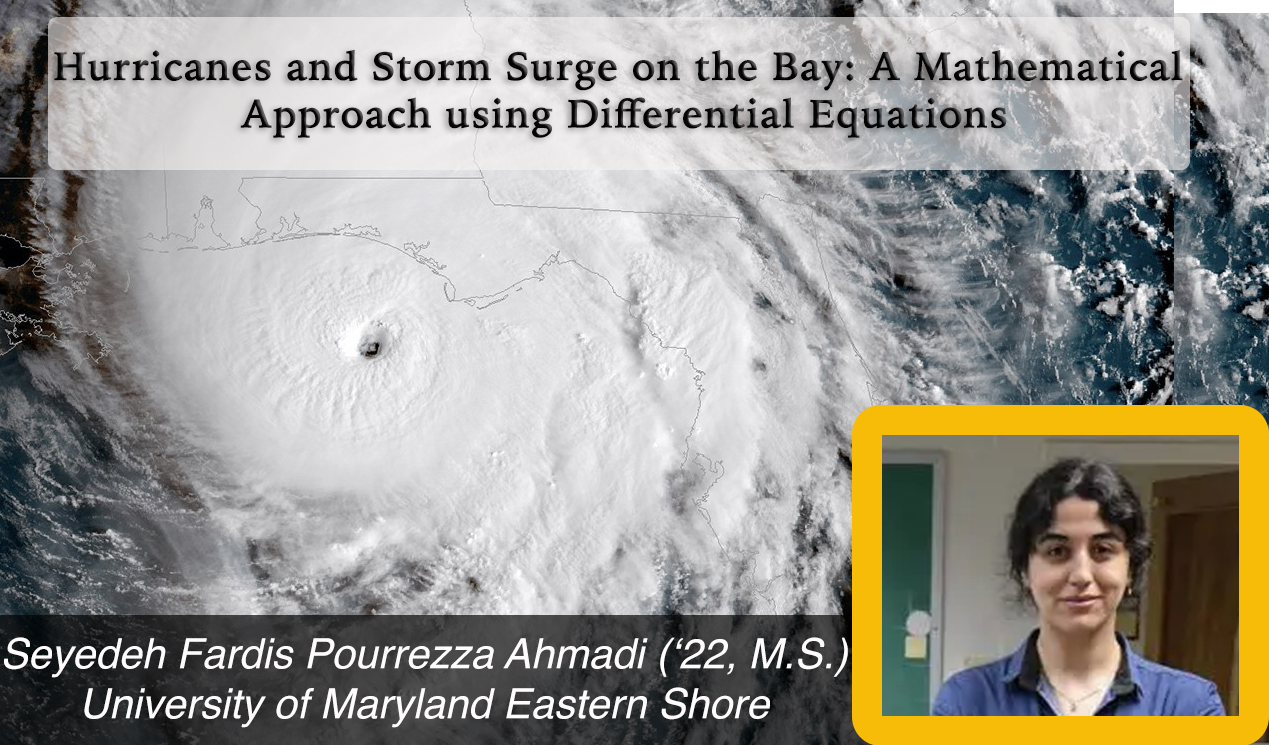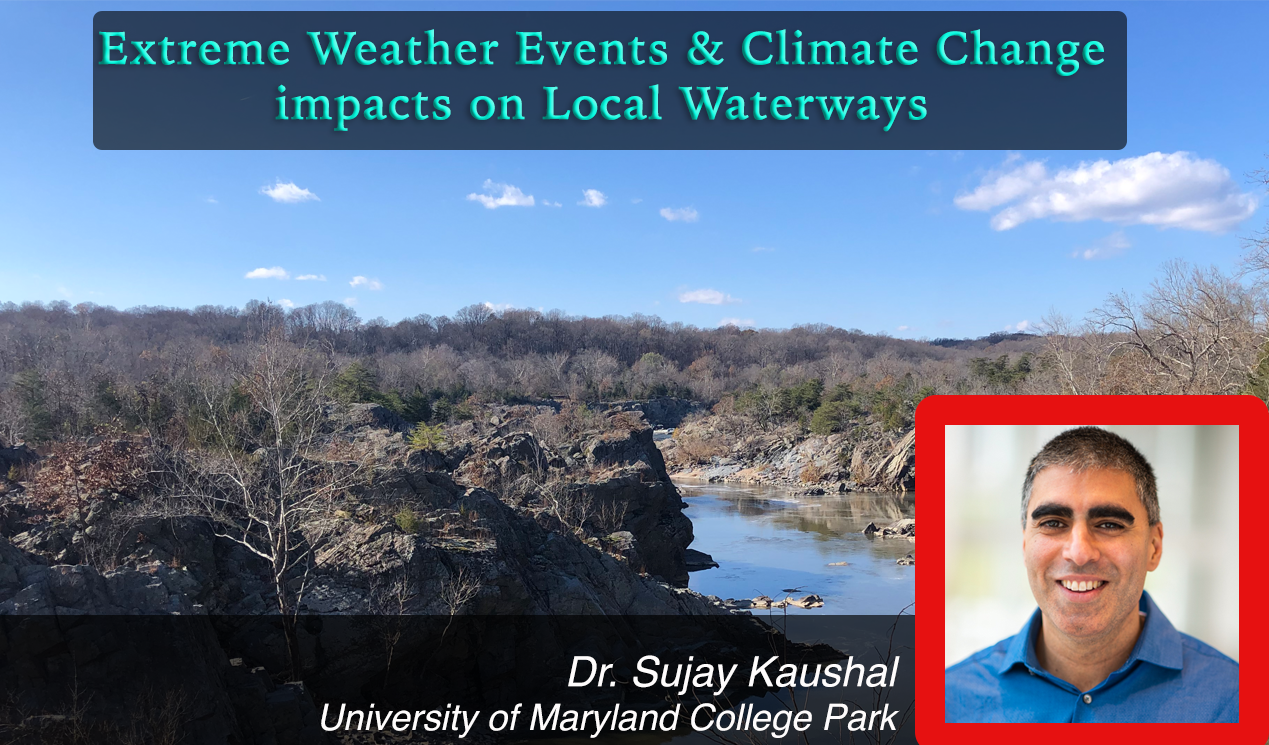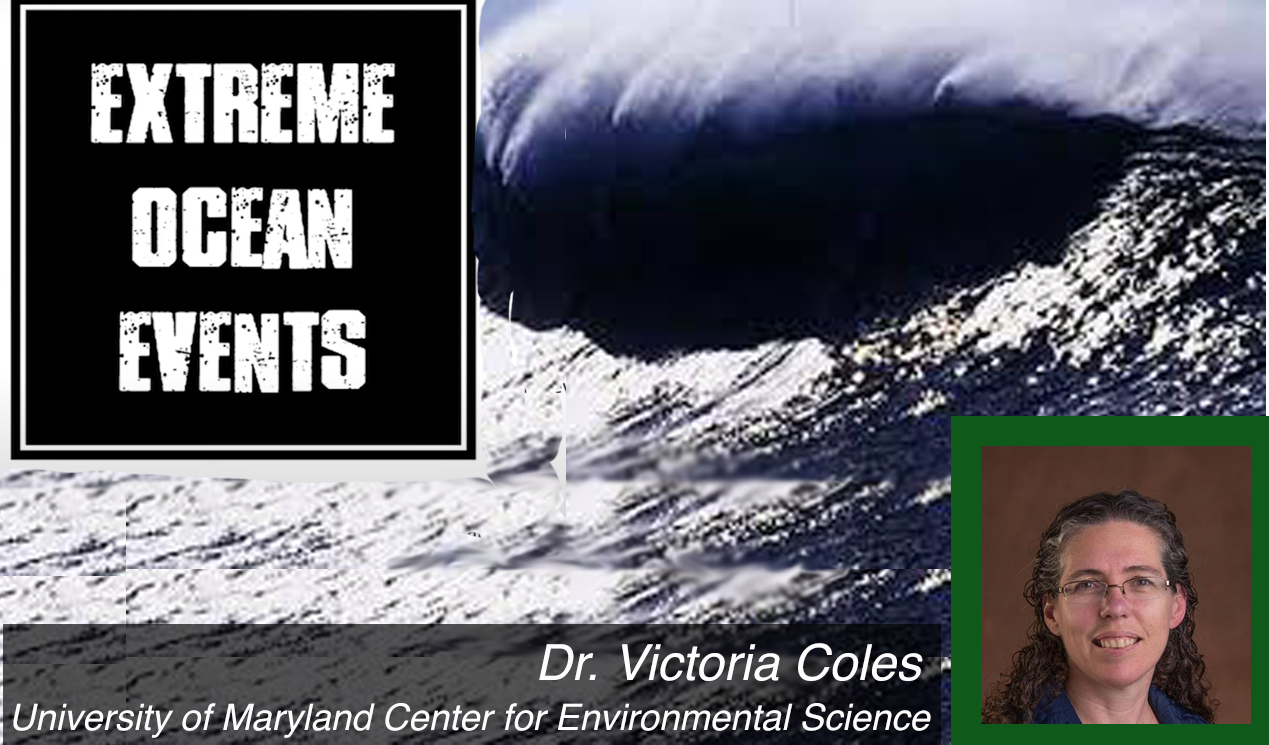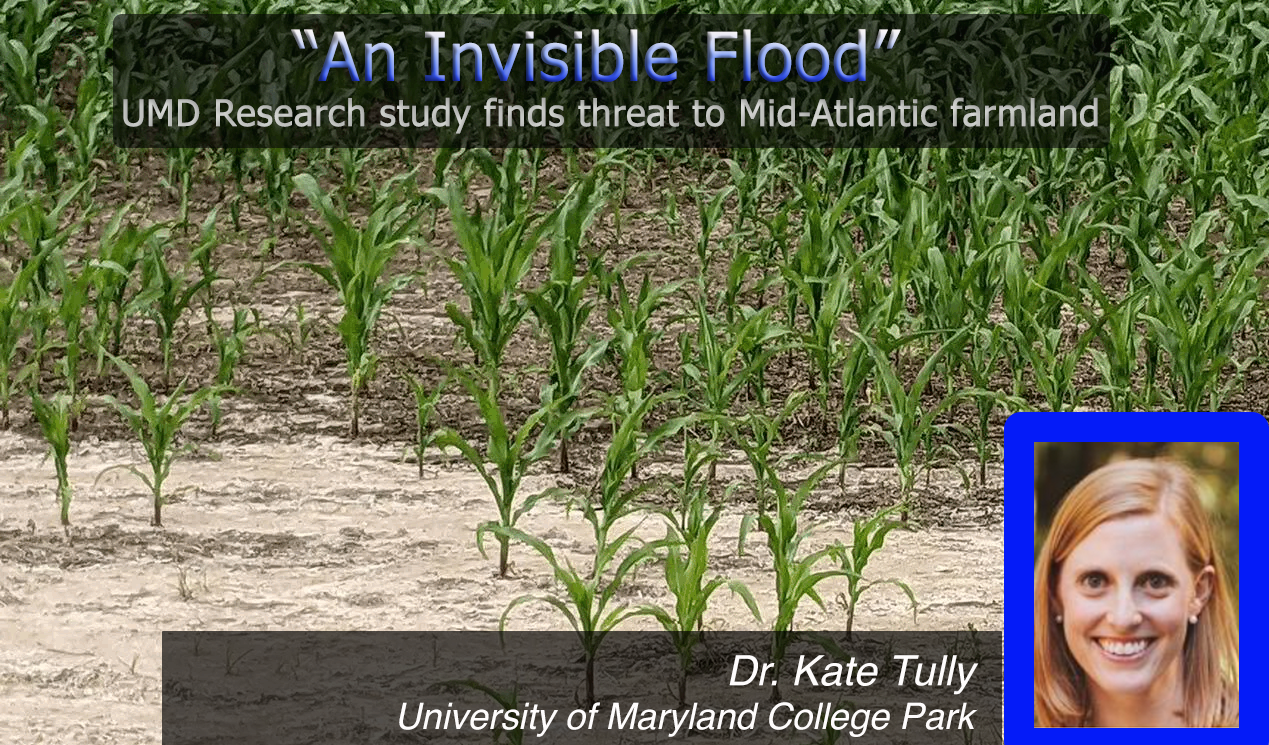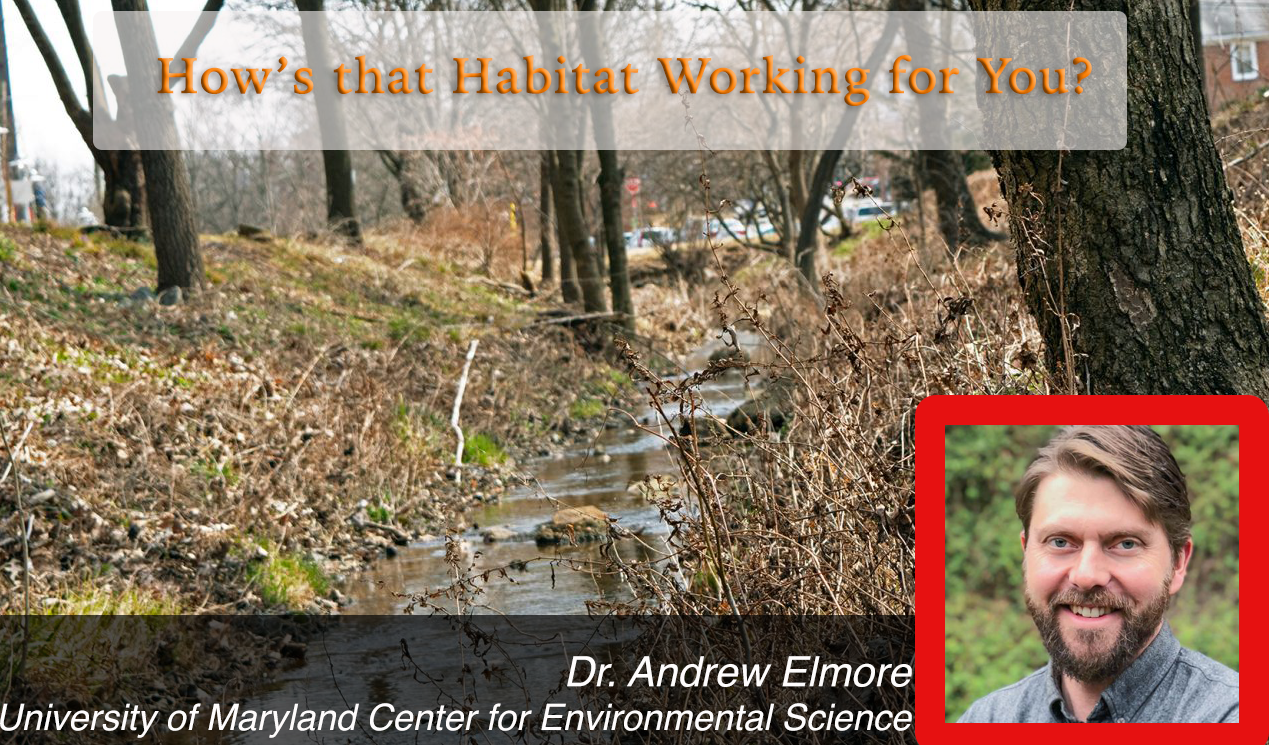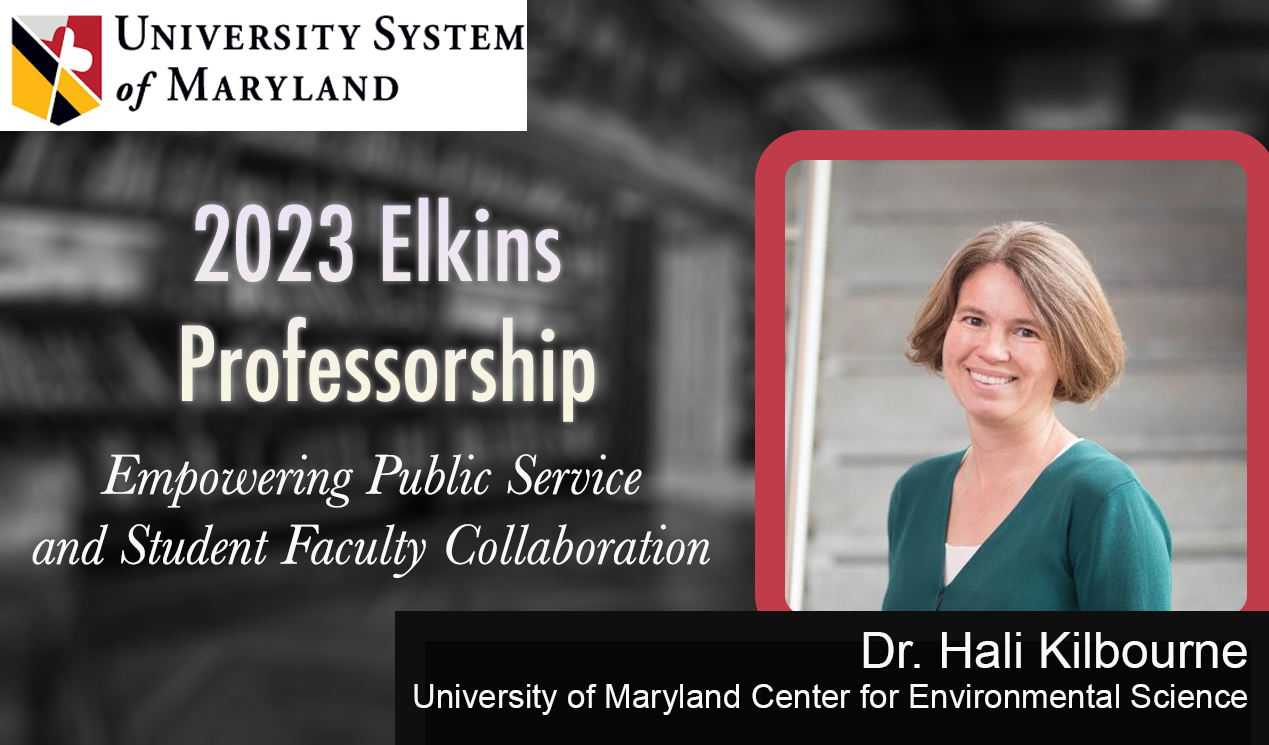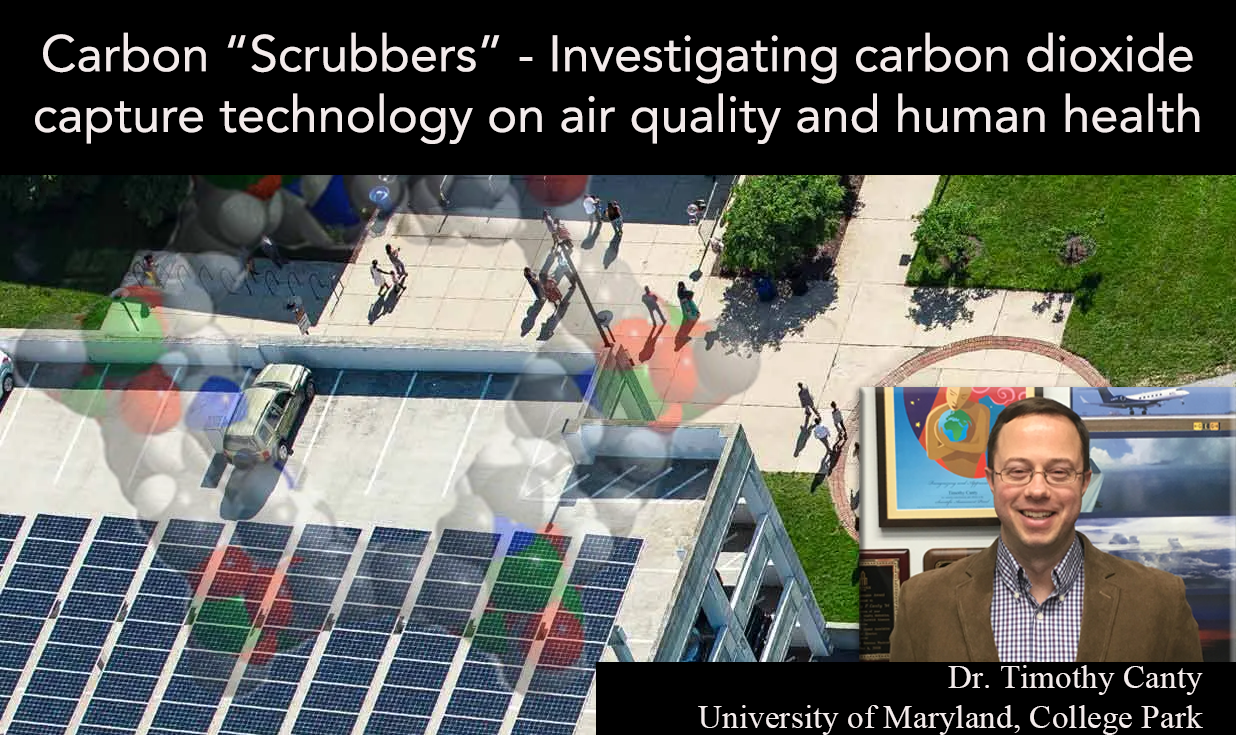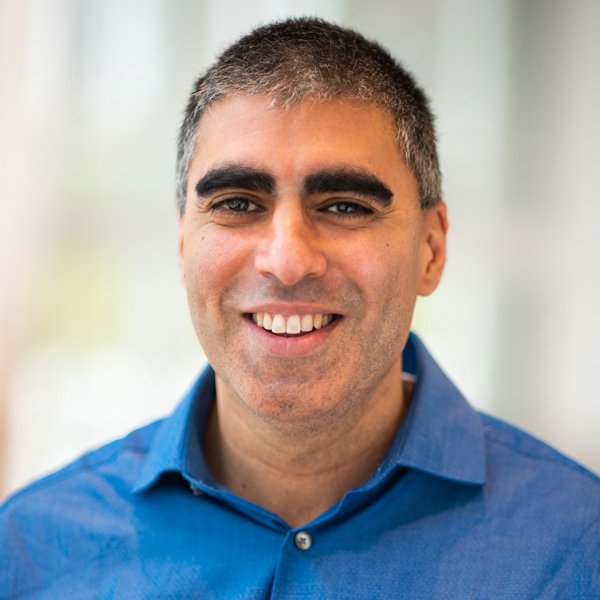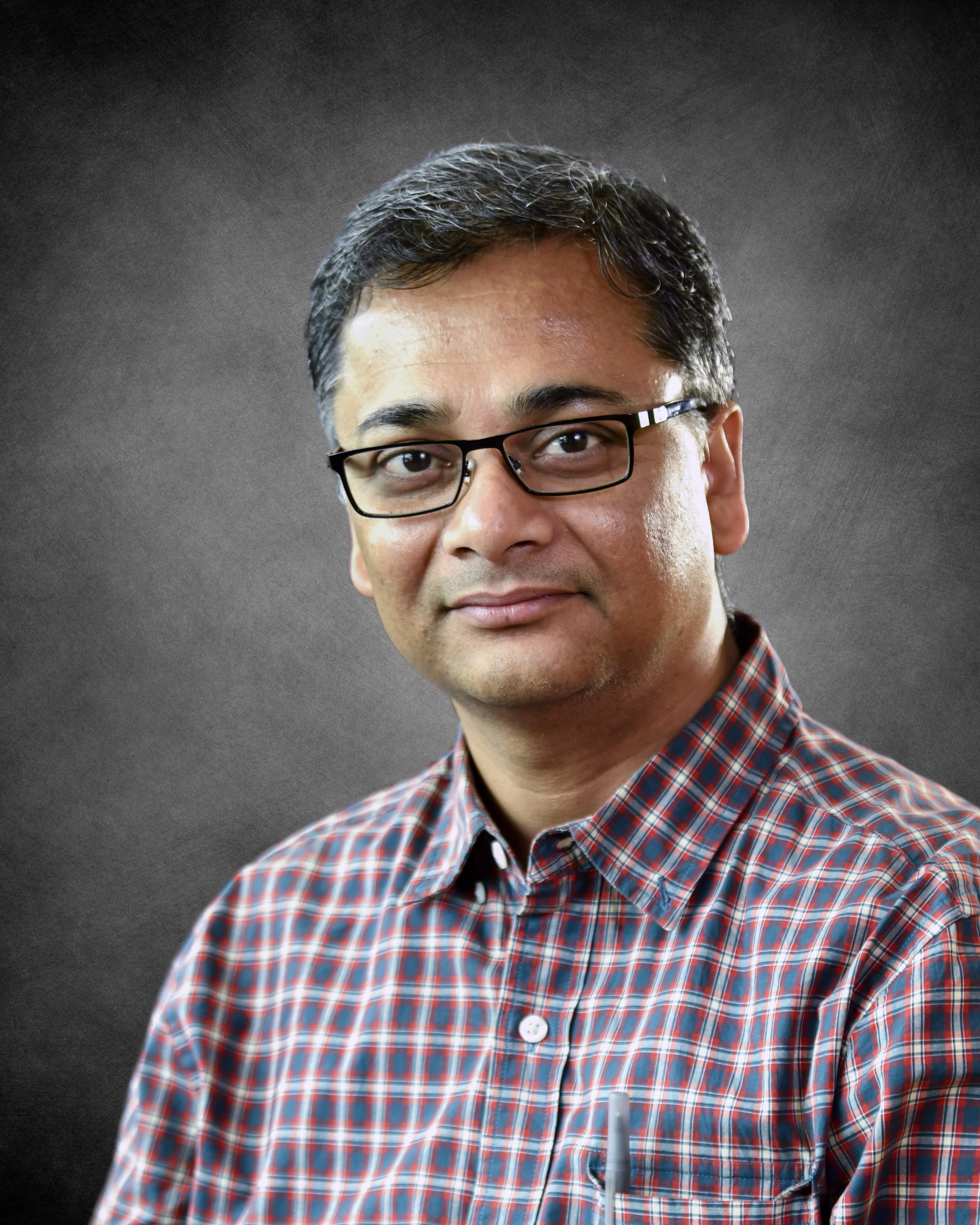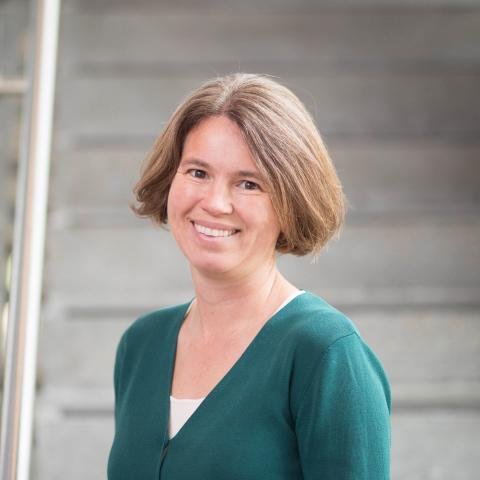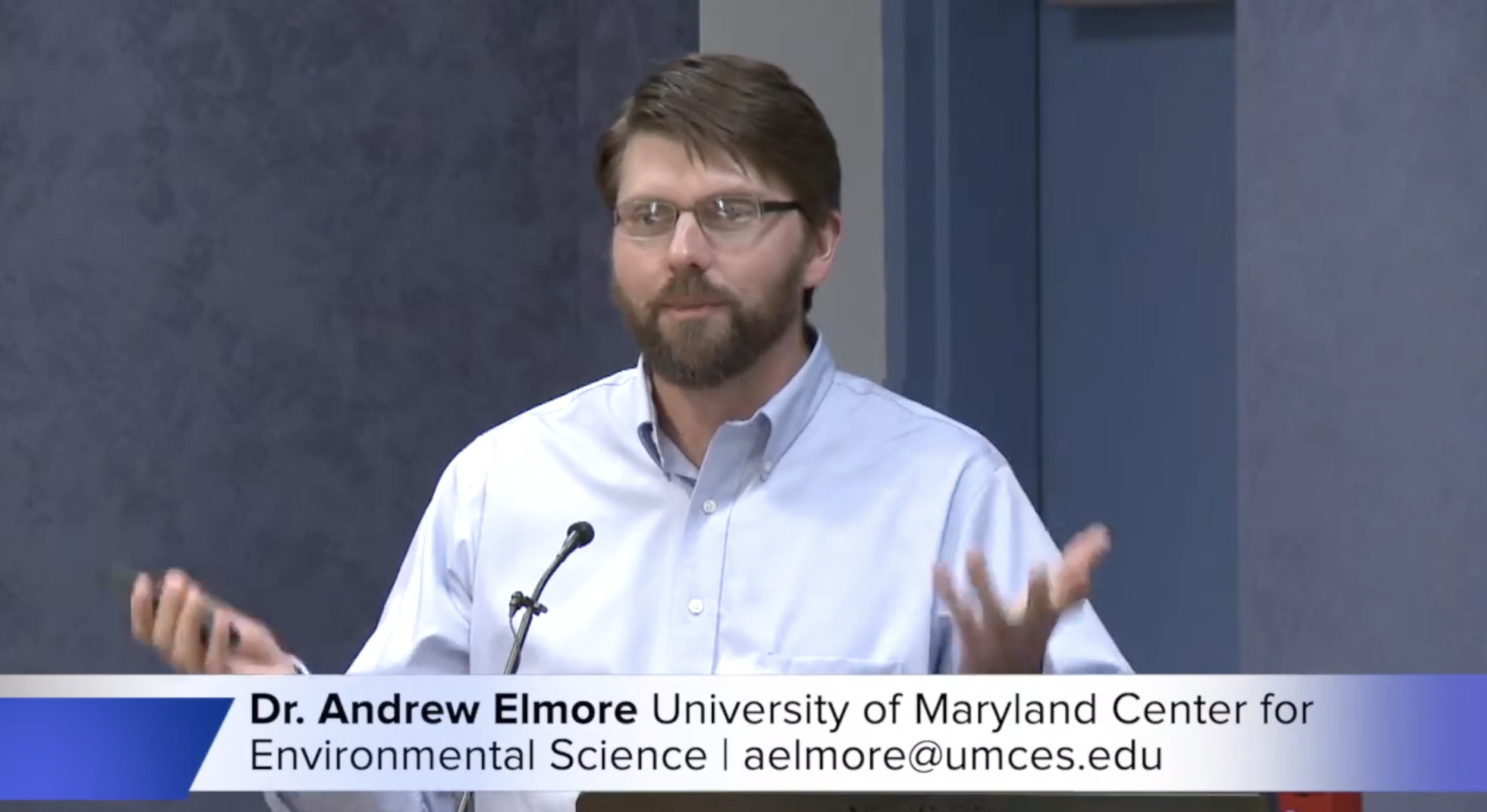ALUMNI CORNER
MEES RESEARCH CENTER
Seyedeh Ahmadi Photo Courtesy: UMES
Seyedeh Fardis Pourrezza Ahmadi (‘22, E&O) is a MEES M.S. graduate student at the University of Maryland Eastern Shore. Advised by Dr. Meng Xia, Fardis’ thesis research focuses on the effects of hurricanes and storm surge on the Chesapeake Bay.
Dr. Kyle Brumfield
Kyle Brumfield (‘23, EMST) , advised by Dr. Rita Colwell, graduated this Summer 2023 with a Ph.D. in MEES from the University of Maryland, College Park.
Dr. Amy Sapkota Photo Courtesy: UMCP/SPH
UMD researchers tackle food & water insecurity
in local communities
September 26, 2023 - Amy Sapkota, is a Professor of environmental health science in the Maryland Institute for Applied Environmental Health at the School of Public Health and is also a long-time MEES Faculty member who has advised and mentored many MEES graduate students. Dr. Sapkota, is also head of the Global FEWture Alliance, part of the $3M UMD Grand Challenges Grant which will scale technology-based solutions, community-driven capacity building, and experiential education focused at the food-energy-water-climate-health nexus. Through a holistic, interdisciplinary, systems-based approach, this initiative aims to alleviate food and water insecurity, protect environmental and global public health, and bolster community resilience in a changing climate. In a recent Maryland Today article, Dr. Sapkota leads a group of University of Maryland researchers and students from the Global FEWture Alliance who are teaming up with the City of Hyattsville and their community’s leaders to improve their water and energy efficiency. The UMD team has ideas which include using metal roofs for harvesting rainwater for irrigation, as well as composting bins for weeds and rinds for soil enrichment. For more information, please click here.
Back to Top
Dr. Sujay Kaushal Photo Courtesy: UMCP/GEOL
September 18, 2023 - Dr. Sujay Kaushal is Professor in the Department of Geology at the University of Maryland, College Park and at the Earth System Science Interdisciplinary Center (ESSIC). Dr. Kaushal’s areas of expertise are in Biogeochemistry and Hydrology, with research interests in the long-term chemistry of fresh waters, the effects of land use and climate on water quality, and managing the restoration of freshwater. ecosystems. Dr. Kaushal, who not only is a MEES faculty member, but has also served as instructor for many MEES courses, was featured in a recent article entitled, “Climate Change Is Hurting the Water Quality of Rivers, According to New Scientific Review” highlighting a recent scientific review paper, co-authored by Dr. Kaushal, and published in the Nature Reviews Earth & Environment journal. Dr. Kaushal, along with an international team of researchers led by Dr. Michelle van Vliet of Utrecht University in the Netherlands, looked at multiple markers of water quality: temperature; salinity (salt content); dissolved oxygen levels; algal blooms; and concentrations of nutrients, metals, microorganisms, pharmaceuticals and plastics in river water. In the announcement by the College of Mathematical & Natural Sciences (CMNS), the researchers analyzed over 965 cases, and found that river water quality deteriorated in “68% of cases involving droughts and heat waves”, and “noted a decline in 56% of cases involving long-term changes in climate, as well as 51% of cases involving rainstorms and floods”. The study aims at helping prevent many of the worst potential consequences of climate change on water quality. For more on Dr. Kaushal, click here.
Back to Top
congratulations to our distinguished mees faculty!
Dr. Kausiksankar Das Photo Courtesy: UMES
Dr. Eric May Photo Courtesy: UMES
Dr. Yan Waguespack Photo Courtesy: UMES
September 2023 - Congratulations to Dr. Kausiksankar Das, who recently promoted to full Professor at the University of Maryland Eastern Shore and also serves as Director of UMES' Center for Student Excellence, and both Dr. Eric May (UMES), Professor of Fisheries Science, and Dr. Yan Waguespack (UMES), Professor of Physical and Inorganic Chemistry, who recently reached tenure. We at the MEES Graduate Program are so very proud of our faculty whose exemplary skills, leadership, creativity, and mentoring have been recognized! This is a well earned appreciation and acknowledgment of all your hard work! Congratulations!
2023 Elkins Professorship - Dr. Hali KiLbourne (UMCES)
Dr. Hali Kilbourne Photo Courtesy: UMCES/CBL
August 11, 2023 - The MEES Program would like to congratulate our very own Dr. Hali Kilbourne (UMCES), based at the Chesapeake Biological Laboratory, who recently received from the University System of Maryland (USM) the prestigious and highly distinguished USM Elkins Professorship, for fiscal year 2024, established in 1978 as the first permanently endowed, university-wide professorship at the University of Maryland. Dr. Kilbourne, a long time MEES faculty member, is a climate scientist with expertise in paleoclimatology. She uses natural archives of past climate to better understand climate processes occurring over centuries to seasons. Recently she works on understanding links between climate change and deep overturning circulation in the Atlantic to answer the question, “Has overturning already started to slow down because of anthropogenic warming?” Dr. Kilbourne is a specialist in using fossil coral geochemistry to reconstruct past climate variability and better understand the major controls on climate variability. This line of research has led to studies of seawater geochemistry with UMCES and MEES collaborator, Dr. Johan Schijf, to improve coral-based climate reconstructions. This Elkins Professorship will help support Dr. Kilbourne’s efforts to fully implement the MEES Learning Outcomes Assessment (LOA) Plan [MEES LOA Report Appendix B]. She will be conducting site visits this academic year for all MEES students and faculty to foster community discussion and solicit feedback on MEES LOA activities.
The professorship is named after Wilson H. Elkins, a former Rhodes scholar who served as President of the University of Maryland from 1954 to 1978. This professorship funds help support compelling projects with focus on research, scholarship, or community engagement. The MEES Graduate Program is so very proud of our faculty whose exemplary skills, leadership, creativity, and mentoring have been recognized! Congratulations, Dr. Kilbourne, this is a well earned appreciation and acknowledgment of all your hard work! For more on Dr. Kilbourne, please click here.
Back to Top
MEES RESEARCH CENTER
Hurricanes and Storm surge on the chesapeake bay: a mathematical approach using differential equations
Seyedeh Fardis Pourrezza Ahmadi Photo Courtesy: UMES
Seyedeh Fardis Pourrezza Ahmadi (‘22, E&O) is a MEES M.S. graduate student at the University of Maryland Eastern Shore. Advised by Dr. Meng Xia, Fardis’ thesis research focuses on the effects of hurricanes and storm surge on the Chesapeake Bay. Prior to joining the MEES program, Fardis' training and expertise lay in mathematics, focusing on numerical modeling. Fardis graduated with a B.S. in Applied Mathematics from Alzara University in Tehran, Iran in Spring 2022 where she had the opportunity to not only TA for linear algebra and a fundamental of mathematics course, but also participated in a project in which she expanded a new integral transform introduced by her father, who has a Ph.D. in applied mathematics, to all theorems about integral transforms and presented the results in a paper published in the Journal of Mathematics and Statistics (2020). This experience opened Fardis’ eyes to the possible applications in cosmology, medical science, environmental science and biology. Fardis’ interests led her to further explore partial differential equations (PDE’s) and ordinary differential equations (ODE’s) in the marine sciences through Dr. Meng Xia’s work in particle dynamics and coastal circulation models which uses PDE’s and ODE’s. Fardis is currently compiling historical data on Chesapeake Bay water levels before and after significant weather events (including hurricanes) as well as the ecological impact on the biology (possibly using the blue crab as a test species). For more on Fardis, please click here.
An ‘invisible flood’: UMD research study finds threat to Mid-atlantic farmland
Dr. Kate Tully Photo Credit: UMCP/AGNR
August 30, 2023 - Kate Tully is an Associate Professor of Agroecology in the Department of Plant Science and Landscape Architecture and a MEES Faculty member. Her research assesses the sustainability of food production systems by examining their effects on interactions among plants, soils, carbon, nutrient, and water cycles. In a recent Maryland Today article, Dr. Tully along with scientists from the University of Delaware, George Washington University and the University of Maryland studied the spread of salt water intrusion on farmland in Delaware, Maryland and Virginia and discovered over 19,000 acres were turned into marshland from 2011-2017. In the article, Dr. Tully said that “Saltwater intrusion often happens in advance of sea level rise, which is why we call it the invisible flood”; researchers hope that the information gathered can help identify high-risk areas to better target regions where these transitions are occurring. Using a combination of remote sensing and machine learning algorithms, the researchers identified areas where salt patches had already formed, and areas at risk to saline soil and analyzed landscape changes over time. This will help local farmers in crop planning, like switching from corn (saline soil-intolerant) to sorghum (saline soil-tolerant), but in the long run, the trend will make even these soils unfarmable. The researchers aim to provide stakeholders with valuable information to help identify priority areas for various interventions (like creating a natural barrier to slow the saltwater encroachment). For more information on this important study, please click here.
This article was adapted from an article in Maryland Today.
Back to Top
ALUMNI CORNER - Dr. KYLE BRUMFIELD
Dr. Kyle Brumfield. Photo Courtesy: Self
Kyle Brumfield (‘23, EMST) graduated this Summer 2023 with a Ph.D. in MEES from the University of Maryland, College Park. Advised by Dr. Rita Colwell, Kyle’s dissertation research focused on exploring the relationships between climate change and shifts in the geographical range of key biological species in the emergence and re-emergence of disease using Vibrio spp., native to aquatic ecosystems, as the test species. Some species of the genus Vibrio cause infection in humans, of which Vibrio cholerae, the etiological agent of pandemic cholera, is the most documented. Prior to joining the MEES Program, this Panther alum graduated from Plymouth State University in Spring 2015, magna cum laude with a B.S. in both Biotechnology and Biology and a double minor in Chemistry and Mathematics. While at PSU, under the guidance of Dr. Mike Son, Assistant Professor in Microbiology, Kyle joined the Son Lab as an undergraduate researcher focusing on bacteriology as it relates to human infectious diseases. This research led to Kyle’s first publication as a co-first author in the American Society of Microbiology’s (ASM) mSphere Journal in 2016. This would lead Kyle to continue his research with Dr. Son as he soon after entered the Biology Master’s program at PSU in Fall 2015. Kyle earned numerous awards while at PSU, including being either on the President’s List or the Dean’s List for every semester enrolled, a member of the Phi Kappa Alpha Society which is the top 5% of the junior class and was awarded the Top 20 Outstanding Senior Award. Kyle earned his M.S. in Biology in Spring 2017 with a perfect 4.0 GPA. His thesis, entitled “SNPs identified in Vibrio cholerae clinical isolates effect virulence and attachment” focused on the relationship between V. cholerae, which is the causative agent of cholera, and planktonic crustaceans (i.e. copopods) through an SRAC (Student Research Advisory Council) grant where a novel protocol was designed and implemented. During his career in the MEES Program, Kyle has earned many awards including the prestigious Dean’s Fellowship (2017,2018), and the ISBM best oral presentation award (2022). Kyle has over 20 publications, has served as both a MEES Graduate Student Organization member and represented the MEES Program in the College Park Graduate School Graduate Student Organization (GSO). Kyle is slated to begin his postdoctoral research in October with the National Geo-spatial Intelligence Agency.
Back to Top
How’s that Habitat working for you?
Dr. Andrew Elmore is Professor of landscape ecology at the University of Maryland Center for Environmental Science, Appalachian Laboratory and at the National Socio-environmental Synthesis Center. Dr. Elmore, a long time MEES faculty member, has mentored and advised many MEES students, taught numerous MEES courses and has served as chair on the MEES admissions committee and the MEES Program Committee. Dr. Elmore has garnered numerous awards including the prestigious University System of Maryland (USM) Board of Regents Faculty Award for Research (2014). Dr. Elmore research interests works broadly across issues relevant to global environmental change, with a particular interest in ecosystem interactions with land-use and land-cover change. Recent work has focused on the effect of groundwater decline on wind erosion and air quality in deserts; the impact of urban stream burial on stream network structure and functioning; modeling coastal habitat change associate with sea level rise; and, understanding forest responses to changes in spring and autumn timing associated with climate change. He applies an array of tools to these problems, but has made the greatest impact on methods for analyzing satellite and airborne remote sensing data. Check out Dr. Elmore’s presentation entitled: “Effects of Climate Change on Water Quality in Forested Watersheds Draining to the Chesapeake Bay” at QACTV (Queen Anne’s County TV')’s "How's that Habitat working for you?” meeting on May 3, 2019 at Horn Point Laboratory in Cambridge, MD.
Back to Top
faculty focus
DR. Victoria Coles
Dr. Victoria Coles Photo Courtesy: UMCES/HPL
Dr. Victoria Coles is a physical oceanographer, Professor at the University of Maryland Center for Environmental Science, and a long time MEES faculty member. Dr. Coles’ research focuses on understanding the interactions between physical and biogeochemical ocean processes in both coastal and open ocean regimes. Based in Horn Point Laboratory, Dr. Coles’ current research uses both observational and models of coupled systems using strategies that bridge widely varying spatial and temporal scales to, among others, better understand the physical and ecological impacts of changes in extreme events in the Chesapeake Bay and explore Eulerian with Lagrangian and stochastic modeling techniques to allow coupled circulation, biogeochemistry, and ecology models in the Amazon River Plume. Dr. Coles, who has mentored and advised many MEES students, recently organized and chaired a Plenary Session hosted by the Ocean Carbon Biogeochemistry Project Office at the Woods Hole Oceanographic Institution on Extreme Ocean Events in October 2022. Dr. Coles also participated in a weekly video series hosted by UMCES entitled, “Discovering the Chesapeake”, where she discusses how making global climate models help us understand what kind of climate impacts might be facing Maryland.
Back to Top
Please contact us with feedback and ideas for future features!
